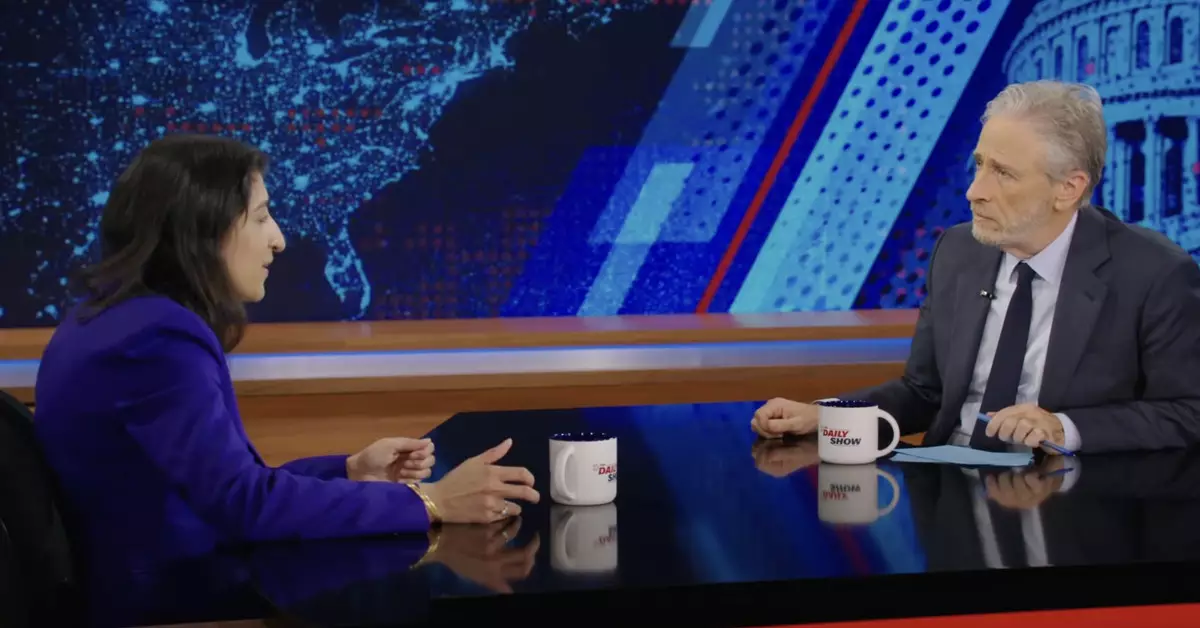Jon Stewart, the former host of “The Problem With Jon Stewart” on Apple TV Plus, has been shedding light on the acrimonious relationship he had with Apple since the show’s cancellation. During an interview with FTC Chair Lina Khan on The Daily Show, Stewart revealed that Apple explicitly asked him not to speak with her for a podcast. This revelation begs the question: why is Apple so afraid of having certain conversations in the public sphere?
The crux of the issue seems to lie in the concentration of power and decision-making within a small number of companies, as noted by Khan. With tech giants wielding immense influence over various aspects of our lives, it is crucial to examine how this power is being used and whether it is in the best interest of consumers. Khan’s strong stance on antitrust behavior, especially from tech companies, highlights the need for accountability and transparency in the industry.
In recent times, the FTC has taken a proactive approach towards challenging monopolistic practices in the tech sector. Antitrust lawsuits against Amazon, Microsoft, and ongoing investigations into Google’s investments in OpenAI and Anthropic demonstrate a commitment to fostering a competitive marketplace. Apple, too, has been caught in the crossfire with the Department of Justice filing a lawsuit accusing the company of anticompetitive behavior related to the App Store, Apple Watch, and messaging services.
The fallout between Jon Stewart and Apple following the cancellation of his show stemmed from what appeared to be “creative differences.” Stewart’s desire to cover topics such as AI and China conflicted with Apple’s business interests, particularly in relation to its dealings in China. The company’s tightrope walk between maintaining lucrative relationships in China and upholding democratic values elsewhere has been a subject of scrutiny.
While Apple has not revealed its AI plans, the upcoming Worldwide Developers Conference in June is expected to shed light on the company’s direction. In the EU, Apple is facing regulatory scrutiny under the Digital Markets Act, which designates it as a gatekeeper in the region’s software ecosystem. As the tech giant navigates these challenges, it must strike a balance between innovation, competition, and ethical responsibility.
The rift between Jon Stewart and Apple underscores broader issues within the tech industry regarding power dynamics, accountability, and the impact of business decisions on societal discourse. As consumers and regulators continue to demand transparency and fairness from tech companies, it is imperative for stakeholders to engage in meaningful dialogue and strive towards a more equitable digital landscape.


Leave a Reply